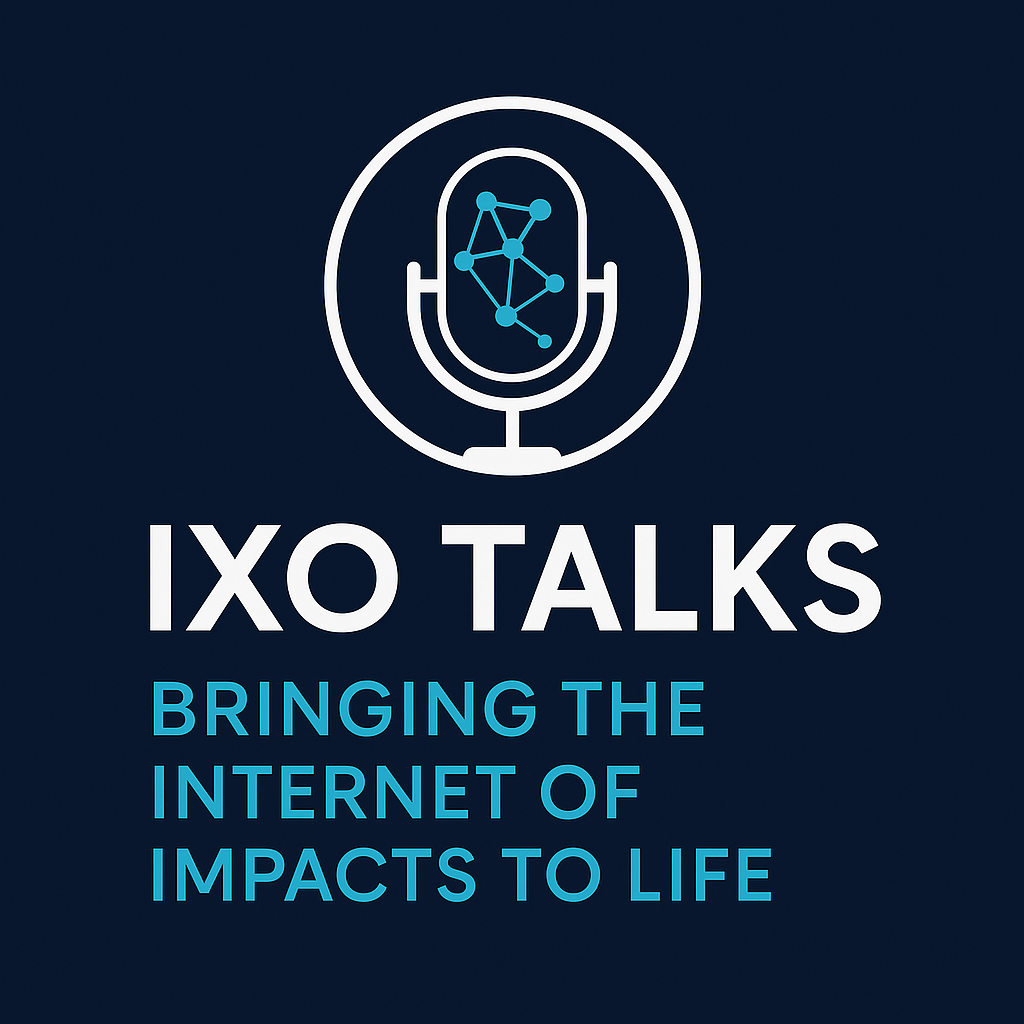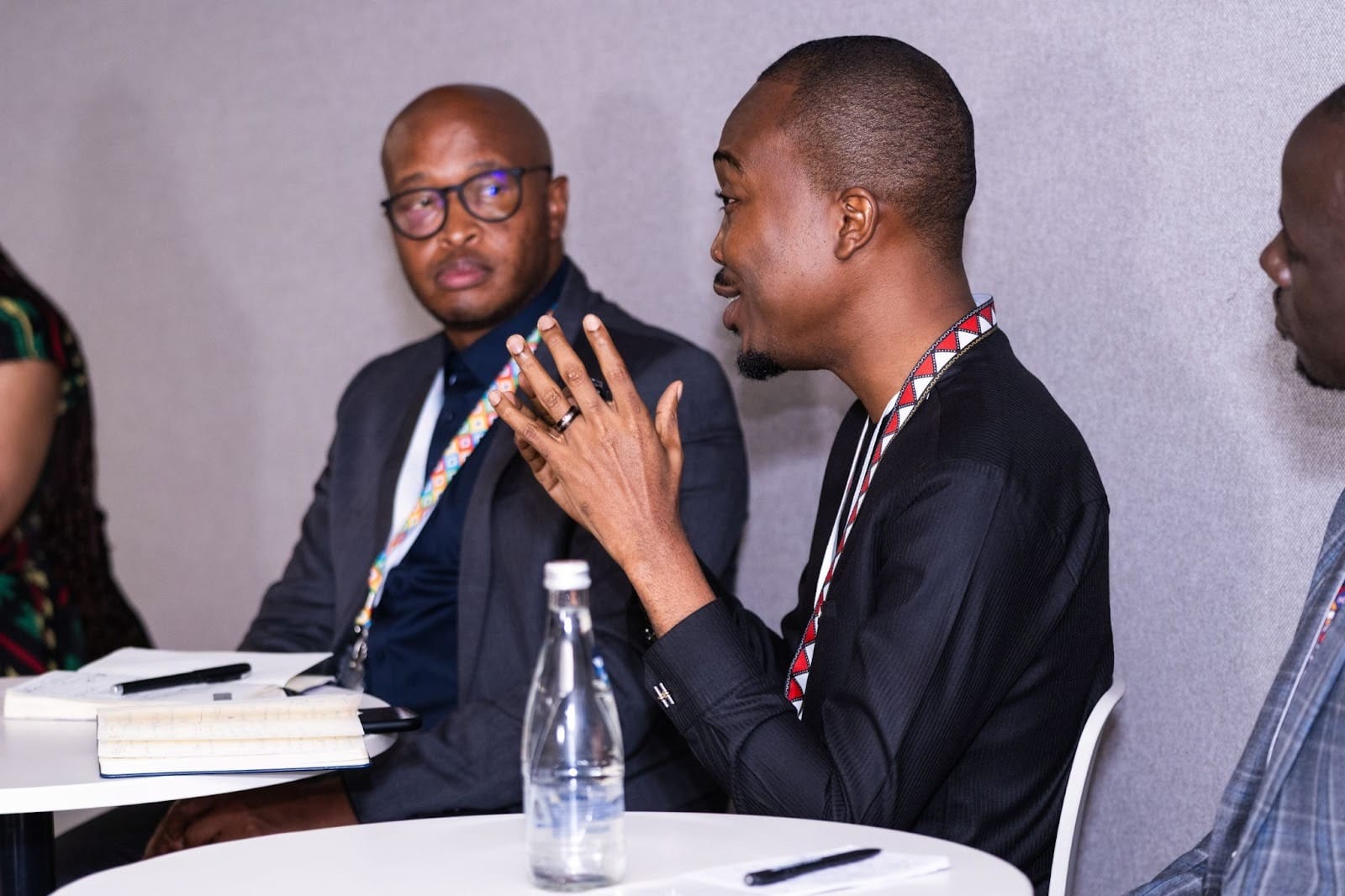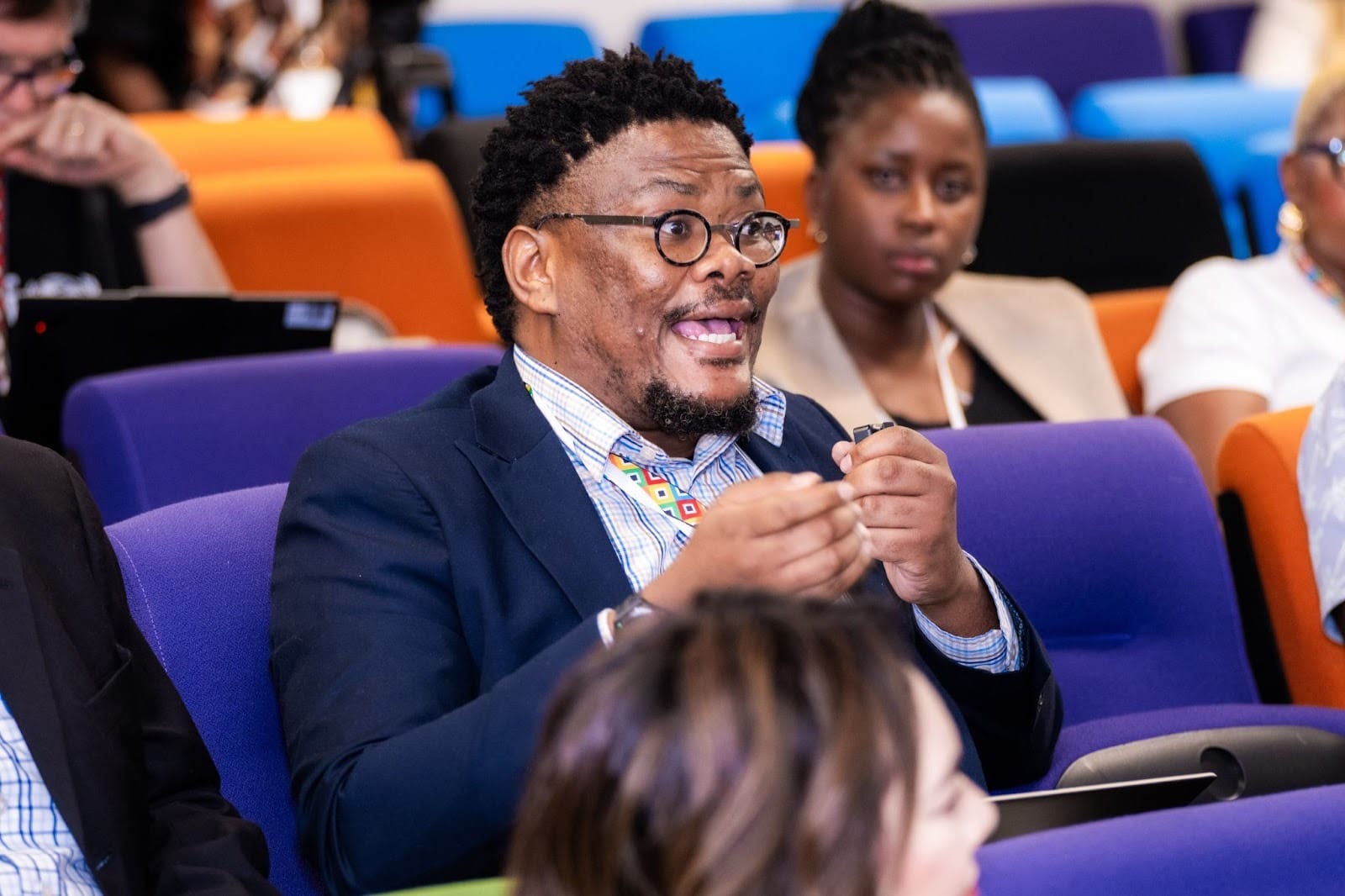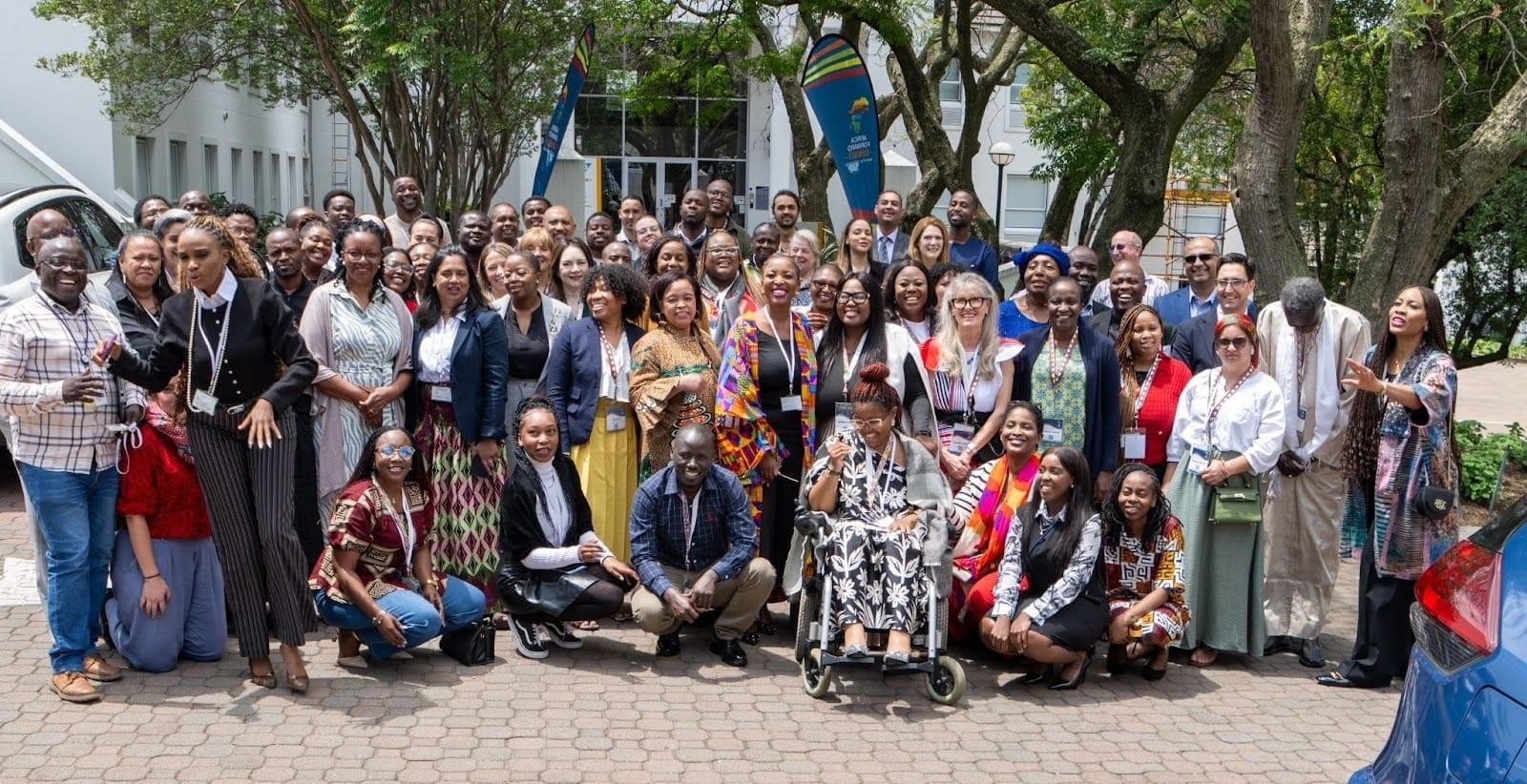
From 18–20 November 2025, I attended the Africa Forward Summit at SAP South Africa - an official G20 Social Summit side event focused on growing the Social and Solidarity Economy (SSE). On Day One, the Schwab Foundation for Social Entrepreneurship released a report on the SSE in Africa, reinforcing what many already knew: the SSE is a major economic and employment engine on the continent, led largely by women and youth. I was invited by UNICEF South Africa and Generation Unlimited to present our work with Yoma and youth-led impacts.
They called it a summit, but it felt more like a long, unfinished prayer.
Three days in a building of glass and passwords, Africa sat in rows and tried to remember her own voice. On the walls, slides flashed numbers: 2.9 trillion, 10x growth, $98 billion of unseen value. Someone at the front said, “Potential does not create livelihoods,” and the room hummed in agreement, as if the sentence belonged to all of them.
A young man from Benin spoke of his grandfather’s fields, how agriculture was never a “sector” until someone wrote it that way. A social worker from Uganda talked about people arriving with nothing but trauma and torn photographs, and how every project that forgot the wound failed, no matter how glossy the report. A man from the AU unfolded a strategy where “social and solidarity economy” would finally be written into law, like a long-neglected ancestor added back into the family tree.

Between panels, the youth sat in circles, phones charging in messy clusters. They compared notes: decent work, platform economy, green jobs, ECD, repairs, parametric insurance. They spoke a language made of acronyms and memories; land dispossession, load shedding, remote work, cousins who never found work. Someone joked that if acronyms were jobs, everyone in the room would be fully employed.
In a session on finance, a man in a dark suit said there was “enough capital in the system.” The youth looked at one another and silently measured the distance between “the system” and their empty wallets. Another speaker called grants “bandages on broken bones” and proposed guarantees, blended finance, self-liquidating tools. “The best form of finance,” someone else added, “is revenue”.
The word hung there. Revenue. As if it were a river you could just decide to live beside.
Later, a systems thinker spoke of dMRV and digital twins, of moving from counting projects to mapping living systems. The slide behind him showed diagrams of loops and nodes, but the youth were thinking about their grandmothers, about care work that never appears in dashboards, about community kitchens that don’t have a chart, only a queue.
Someone else suggested a matrix consisting of the questions; “Who sees? Who solves? Whose story is being told?” Someone in the back wrote in their notebook:
Trust cannot be legislated.
The sentence felt truer than any graph.
That afternoon, a man named Katlego asked if they were being radical enough. “Why do we keep building the same entrepreneurship programmes,” he said, “when the world that swallowed the last cohort is still intact?” The room laughed, but it was a tired kind of laughter, the sound you make when you recognise a trap you keep walking into.

In the final panel, a gentle argument broke out about platforms. A story was told: in old times, hunters came back to the village and told stories of the hunt. The animals never spoke. “Today,” the speaker said, “the platform is the hunter. It decides what is visible, what is valuable, what is real.”
A youth delegate raised their hand. They spoke softly, but the microphone carried their words to the corners of the room:
The way we do impact investing, M&E, even ‘innovation’ still feels like the old dominator model; hierarchical, patriarchal, obsessed with growth, certain that everything sacred can be captured and turned into a metric. If the worst realities of our age are manufactured realities, then how do we re-dream the way we move money, measure change, and tell stories, without becoming the new hunters? In a world that is still capitalist, still changing, how do we braid old community wisdom and new tools, so we don’t become what we’re resisting?
For a moment, no one answered. The silence felt less like absence and more like listening.
Then the responses came, about ecosystems not heroes, about home-grown capital, about no silver bullet, only shared tools. Those stories were created by humans, they can be reinvented humans. No one pretended to have a clean solution. Instead, something quieter emerged: an agreement that the work ahead was less about inventing new buzzwords and more about changing the choreography, who convenes, who decides, who gets paid, who gets heard.
As the summit ended, the youth spilled back into the city, into taxis, trains, long walks, borrowed couches. None of them left with a magic fix for youth unemployment or the perfect funding model for the social economy. But many left with draft blueprints: co-ops on scraps of paper, impact gig ideas sketched on the back of programmes, new contacts saved under names like “Refugee Centre guy - trauma-informed” and “Hollard lady - ask re: youth insurance.”
Outside, the November sky over Johannesburg was the colour of possibility and smog. A group of youth paused on the pavement, looking back at the glass building and security guards. The rain was coming soon.
“Feels like we’ve been arguing about how to build a house,” one said, “and no one is sure who needs to do what.”
“Maybe that’s okay,” another replied. “As long as, this time, we all own the land.”
They walked on, carrying their notes, their questions, and the faint, stubborn belief that if stories can manufacture realities, then a different kind of story, told together, might yet build a different kind of world.

If you are a champion for youth action, an impact financier, policy maker, technologist, activist or young person, there is room for collaboration. Systemic challenges require ecosystemic coordination and intelligent cooperation.





